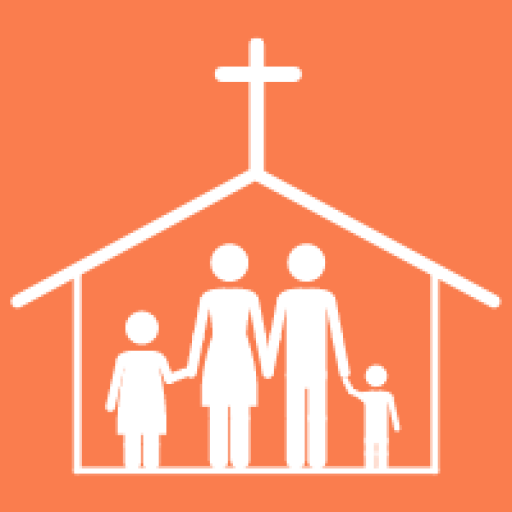“Freedom is the ability to love generously . . . Freedom is the ability to seek and choose God.”
Note from Kim: Here is an updated version of my (politically incorrect) July 4 essay!
**************
As we celebrate July 4 as a nation, I am thinking about the meaning of “freedom.” Most folks nowadays think that freedom means they get to do whatever they want without limits, without judgment, without boundaries, and without responsibility. In reality, this is not freedom; it’s a prison. Here is what real freedom means to me.
Freedom Is the Ability to Love
First, freedom is the ability to love generously. In fact, the more unselfishly you can love, the more free you are. Fr. Robert Spitzer explains 4 levels of human happiness in his extraordinary book Finding True Happiness:
- First level: happiness derived from material objects and the pleasures they can provide. There’s nothing wrong with level 1 happiness, but if you spend most of your energy here, you’ll be pretty shallow. This kind of happiness is very short-lived.
- Second level: happiness derived from achievement and comparing ourselves to others and finding we are better or more beautiful in some way. People who live mostly at this level tend to use people for their own gain, and they are not satisfied for very long because they worry that they might lose what they’ve gained.
- Third level: happiness derived from doing good for others and making the world a better place. People who live mostly here are interested in the welfare of others. This is more robust level of happiness, but still people disappoint us at times and don’t do what we hope.
- Fourth level: happiness derived from seeking the transcendent. They don’t want to just meet the immediate needs of other people; they see the deeper goodness in people and work for their salvation. People who live at this level have a desire for communion with God. Level four is the most perfect level of human happiness.
Fr. Spitzer explains the more you move up the levels, the more free you actually become, because you are breaking the chains of your illusions about yourself. Most people nowadays are trapped in level 1 and 2 happiness. They believe that if they just have the right stuff or achieve the right accolades or live in the right house or get the right job that they will be blissfully happy.
As you begin to live more dominantly in at the 3rd and 4th levels, you become less turned in on yourself, and more open and available for love. Human beings are happy and free when they are capable of self-giving love in which they work for the good of the other, even when it means personal sacrifice (level 3). Human beings are most happy and free when they are capable of looking for the good in the other rather than focusing on or even delighting in the bad (level 4).
The truth is, we can never really be free until we grow to a place emotionally and spiritually where we can give and receive this kind of generous love. Holiness requires this kind of freedom. The saints display a transcendent level of freedom because of their ability to respond to God’s love with a radical self-gift and an emptying of themselves for the sake of others even when they get nothing in return, even when they are harmed in return.
I can begin to teach my kids about this kind of freedom by raising them with responsive love, by mentoring them in generosity, and by modeling self-gift in my own life. I can resist consumerism as much as possible. In the age of carefully crafted virtual self-images which are crude reflections of a person’s real self, I can teach my kids about authentic friendship and what real “sharing” is. I can parent them in ways that protect their hearts so that they are capable of real communion and connection with others.
Freedom Is the Ability to Choose the Good, the Beautiful, and the True
Second, freedom is the ability to seek and to choose God. God created us with a thirst for the good, the beautiful, and the true, because they light our way home to him. We have free will, so we can choose to reject the good, the beautiful, and the true; we can choose to reject God and his love, but when we do, we will remain fractured and incomplete. We miss the mark, and we will never truly be happy and at peace.
I want my kids to know this, even if it means teaching them lessons that would be considered politically incorrect, unpopular, and even strange. I can teach them that something is “good” to the extent that it acts in a manner that reflects its true nature and purpose. If we teach our children the basic Christian virtues in a home filled with warmth and love, they will understand what it means to be a good human being. The Christian virtues help us understand our purpose and to act according to our natures.
The culture sends a different message. The culture tells us that “nature” and “purpose” are unstable and evolving, so we are free to decide what they mean to us. A suggestion otherwise is presented as unjust and oppressive to the dignity of this or that person or group. I want my kids to understand that while we can make some choices about our lives and how we express our identity, human dignity is grounded in the identity God gave us, not in some identity we whip up like a milkshake. When we try to live in a way that violates our purpose, our nature, and the identity God gave us, inevitably we “under-live” – we remain mere whispers of what we could be and what we really are.
As I explained to one of my teenagers recently (borrowing an example from philosopher Edward Feser), human beings are not squirrels; human beings and squirrels have different natures and different purposes. If I decided to go live in a tree, gnaw on wood to sharpen my teeth, and collect nuts all day, my actions would not be “good” because I would be acting against my nature and my purpose. Even if I felt strongly drawn to gnaw on wood and live in the tree, I would need a therapist and the support of my family. I would not need a parade encouraging and celebrating my confusion. Similarly, if a squirrel spent its day eating laundry detergent instead of nuts, we would recognize that this behavior was very bad for the squirrel because it contradicts its nature and it will harm the squirrel in the long run. Even if the squirrel was born with a taste for laundry detergent, we would discourage this behavior.
Obviously what I’m saying here applies to many discussions, but in particular to the nature and purpose of marriage, and what it means to be a woman or a man. Our children are being bombarded by LGBT propaganda; it’s a topic we can’t ignore for long. I can teach my older kids that men and women have different natures even though they are equally valuable. Despite what The Tyranny of Hurt Feelings (otherwise known as Ivy League faculty) might say, if you are a boy you cannot choose to be girl any more than you can choose to be a squirrel; a man cannot marry a man because it violates the purpose of marriage and sexuality, and pretending that they are married is therefore damaging to to the dignity of both men involved just like gnawing on wood all day would damage my dignity even if I loved to do it.
To help them become free, I can also teach my children about the meaning of real beauty and the way it reflects God’s great love and benevolence. As a family, we can appreciate God’s creation together, and wonder at the music and art created by gifted men and women. We can talk about why we find some things very beautiful, other things less beautiful even if they hold some value, and still other things downright ugly. For my older kids, it’s important that I help them understand that real beauty has nothing to do with the over-sexualized images they see in the media and which degrade women and men alike
I can teach them about truth by, first of all, confirming for them that objective truth actually exists! By using their power of reason, they can understand that truth is not relative; it is not dependent on their feelings, moods, or inclinations. I can teach them about the truth by catechizing them well, and by showing them how the searching part of them that asks questions and wants to understand the world was placed there by God, and as long as they seek him and the truth in good faith, he will not let them down.
This is probably crazy talk in our culture. Sometimes reality looks crazy, the truth sounds strange, and the beautiful becomes overshadowed by the blinding lights of idiocy. But this is freedom nonetheless, and it’s what I want for my children, for you, and for this country that I love.



Thank you for this reflection!